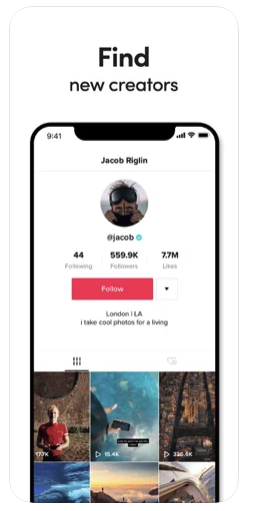Today we take social networks for granted. To top it all off, we have quite a few at our disposal, each of them more or less trying to focus on something different. Among the most famous, we could clearly include Facebook, which was the first to experience incredible worldwide popularity, Instagram focusing on photos and capturing moments, Twitter for sharing thoughts and short messages, TikTok for sharing short videos, YouTube for sharing videos and others.
It could be interest you

In the world of social networks, it is not unusual for one network to be "inspired" by another and practically steal some of its popular features, or concepts and ideas. After all, we could see that several times, slowly afraid of everyone. Let's therefore shed some light together on which social network is actually the biggest "robber". The answer will probably surprise you.
Stealing concepts
As we mentioned above, stealing concepts within social networks is not unusual, on the contrary. It has become the norm. As soon as someone comes up with an idea that gains instant popularity, it's more or less certain that someone else will try to replicate it as quickly as possible. Literally, the company Meta, or rather its social network Instagram, is an expert in such events. At the same time, she started the whole theft of concepts when she added the popular Instagram to the social network Tales (in English Stories) that previously appeared within Snapchat and were a huge success. Of course, that would not be enough, the stories were later integrated into Facebook and Messenger. There is nothing to be surprised about. Stories literally defined today's Instagram and ensured its incredible increase in popularity. Unfortunately, Snapchat then more or less disappeared. Although it still enjoys a lot of users, Instagram has greatly outgrown it in this regard. On the other hand, Twitter, for example, is trying to replicate the same concept.

In addition, we were able to register a very similar situation on the part of Meta company relatively recently. The relatively new social network TikTok, which managed to charm everyone with its idea, began to enter people's subconscious. It is used for sharing short videos. In addition, users are only shown relevant videos that they will almost certainly be interested in based on a sophisticated algorithm. That is why it is probably not surprising that the social network has literally exploded and grown to unprecedented proportions. Meta wanted to use this again and incorporated a new feature called Reels into Instagram. In practice, however, it is a 1:1 copy of the original TikTok.
But in order to not only talk about stealing from the Meta company, we definitely have to mention the interesting "newness" of Twitter. He decided to copy the concept of the social network Clubhouse, which is known for its uniqueness and enjoyed incredible popularity when it was created. Who didn't have Clubhouse, it's like he didn't even exist. In order to join the network back then, you needed an invitation from someone who was already registered. This fact also contributed to its popularity. The social network works quite simply - everyone can create their own room, where others can then join. But you won't find any chat or wall here, you simply won't come across text. The aforementioned rooms function as voice channels, and the Clubhouse is therefore used for you to talk together, hold lectures or debates, and the like. It was this concept that really appealed to Twitter, who were even willing to pay $4 billion for Clubhouse. However, the planned acquisition ultimately fell through.
It could be interest you

Who most often "borrows" foreign concepts?
In the end, let's summarize which social network most often borrows the concepts of the competition. As already follows from the paragraphs above, everything points to Instagram, or rather to the Meta company. Among other things, this company faces quite sharp criticism from experts and the public. In the past, it has faced a number of problems related to data leakage, weak security and a number of similar scandals, which rather only tarnish its name.









 Adam Kos
Adam Kos